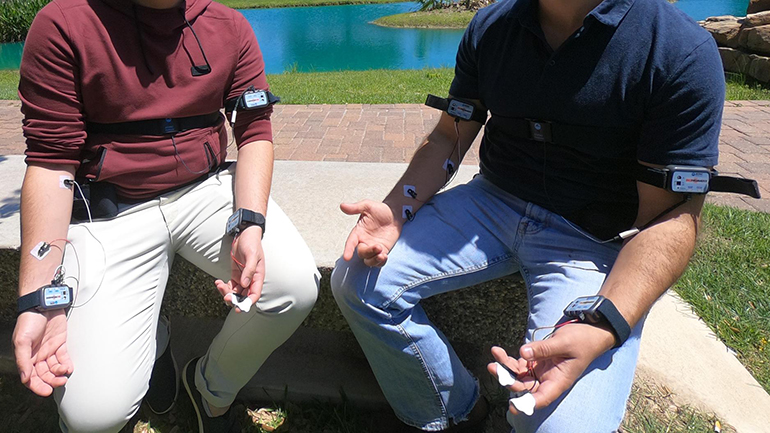Researchers at New York University have created a wearable system that can measure electrodermal activity, a property of the skin that is influenced by mental states, such as stress or excitement. The system is called Multimodal Intelligent Noninvasive brain state Decoder for Wearable Adaptive Closed-loop arcHitectures (MINDWATCH) and it can assess electrodermal activity by measuring skin conductance. An algorithm developed by the researchers models the activity of sweat glands in the skin as a way to assess changes in electrodermal activity and then infers what this means for a wearer’s mental state. The technology has a huge array of potential applications, from monitoring pain and distress in non-verbal patients, such as infants, to protecting mental health and enhancing engagement with life.
We are usually acutely aware of our own mental and emotional states, although paying more attention to such matters is likely to help us reduce stress levels before they get out of hand. However, for those around us, it can often be difficult to determine what emotions someone else is experiencing. Non-verbal individuals especially can’t easily express their emotions, making it particularly challenging to determine what they are experiencing.
Providing an objective window into our own mental states would be very useful in reducing stress and maintaining good mental health. For instance, if you are experiencing acute stress, such a device could alert you to this, and prompt you to take a small break. The technology could be very helpful in allowing people to better manage conditions such as post-traumatic stress disorder and autism. It could also be a game changer for non-verbal patients, such as new-born babies, who may experience pain and agitation without medical staff being aware. This latest wearable technology aims to evaluate a person’s mental state, and it does so by measuring electrodermal activity, an electrical property of the skin that is affected by mental states such as arousal or stress.
“Inferring autonomic nervous system activation from wearable devices in real-time opens new opportunities for monitoring and improving mental health and cognitive engagement,” said Rose Faghih, a researcher involved in the study. “One’s performance changes based on their cognitive engagement and arousal levels. For example, very low or very high levels of arousal can result in poor performance. Ultimately, researchers can utilize the inferred autonomic nervous system activation and decoded arousal to develop interventions for improving productivity.”
So far, the researchers have tested their device in human volunteers, and have reported that they can decipher certain emotional states with a reasonable degree of accuracy and within just a few seconds.
Study in PLOS Computational Biology: Physiological characterization of electrodermal activity enables scalable near real-time autonomic nervous system activation inference
